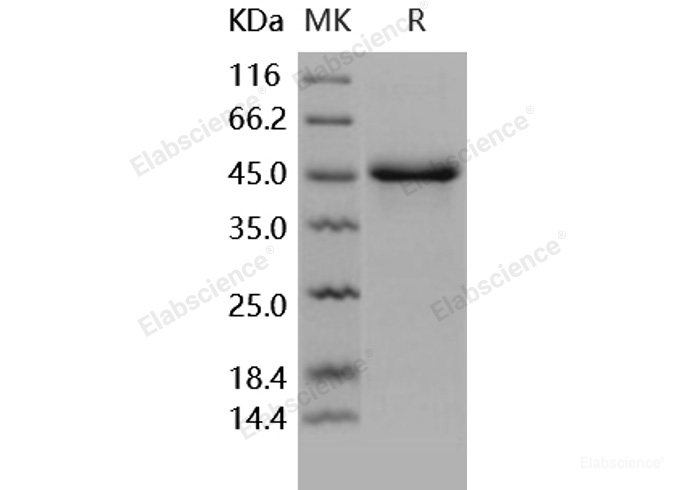Background
Plasminogen activator inhibitor 1, also known as PAI-1, Endothelial plasminogen activator inhibitor, SerpinE1 and PLANH1, is a secreted glycoprotein which belongs to the serpin family. SerpinE1 is the primary physiological inhibitor of the two plasminogen activators urokinase (uPA) and tissue plasminogen activator (tPA). Its rapid interaction with TPA may function as a major control point in the regulation of fibrinolysis. Defects in SerpinE1 are the cause of plasminogen activator inhibitor-1 deficiency (PAI-1 deficiency) which is characterized by abnormal bleeding due to SerpinE1 defect in the plasma. High concentrations of SerpinE1 have been associated with thrombophilia which is an autosomal dominant disorder in which affected individuals are prone to develop serious spontaneous thrombosis. Studies of PAI-1 have contributed significantly to the elucidation of the protease inhibitory mechanism of serpins, which is based on a metastable native state becoming stabilised by insertion of the RCL into the central beta-sheet A and formation of covalent complexes with target proteases. Greater expression of PAI-1 has been associated with increased survival of cells and resistance to apoptosis. PAI-1 appears to influence apoptosis by decreasing cell adhesion (anoikis) as well as its effect on intracellular signaling.







